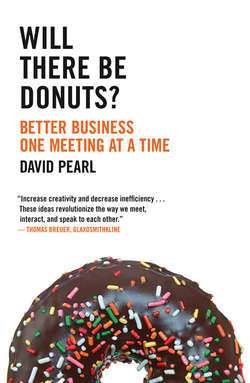Читать книгу Will there be Donuts?: Start a business revolution one meeting at a time - David Pearl - Страница 36
We nearly meet because … that’s what we want to do
ОглавлениеLet’s face it, other people are hard work. They have this annoying habit of not agreeing with us. They have their own ideas and agendas. They don’t, for some reason, think we are always marvelous. They are complex, demanding and just plain tiring.
Why would we want to meet them? Better by far to pretend to meet. Nod but don’t hear. Smile but don’t mean it. Keep “them” on the outside and save your energy.
When I am not in London—or on a plane—I spend as much time as I can in rural Italy. As a lifelong city dweller I am acutely aware of how few people you see on a normal day in the north Italian countryside. The scarcity of the people seems to put them into high relief. You notice them. They notice you. Your eyes meet. You raise your hand. You briefly discuss the ripeness of the tomatoes, the likelihood of rain, the latest aches and pains and whether Juventus are likely to scrape through this season without pouring shame on the team/the region/the nation. It is the sort of setting which encourages connections with others. London is another story. As I take the plane, taxi, or tube back into the center of the metropolis, I feel my mind becoming overwhelmed by potential connection. There are just too many people. I start to screen them out, like the iris of your eye shutting down to protect you from a blast of bright sunlight. Within minutes I am in a bubble where I can walk through a crowd of people on Oxford Street and see—no one.
This ability of the mind to filter out information is a key to our development as a species—and our survival as modern humans. The ability selectively to screen out background sounds so we hear what is being said to us is key to our communication. It is similarly crucial to our survival that we can separate the features of a landscape we don’t need to know about (the green stuff) from the things we might need to know about (like a saber-toothed tiger).
There is growing concern at the connection between the use of digital music players and fatal accidents. The London authorities have started talking about “iPod zombies” and San Francisco has spent millions on a media blitz warning against the screening-out effect of earphones. “Do you want Beethoven to be the last thing you hear?” one lugubrious ad asks the city’s joggers.
